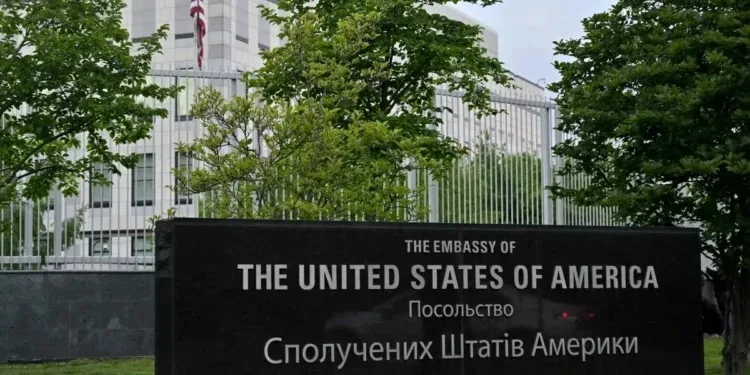The U.S. Embassy in Kyiv has issued an urgent warning about a “potential significant air attack,” prompting its closure and advising U.S. citizens to prepare for immediate shelter if an alert is issued. This development follows Ukraine’s first use of U.S.-supplied long-range missiles to strike targets within Russian territory, a move authorized by President Joe Biden over the weekend.
“The U.S. Embassy in Kyiv has received specific information of a potential significant air attack on November 20,” the Embassy stated on its website. Out of precaution, Embassy operations have been suspended, and employees instructed to shelter in place.
Ukraine’s deployment of the U.S.-made ATACMS missiles, capable of striking targets up to 300 kilometers away, marks a significant escalation in the ongoing conflict. Six missiles were reportedly fired at a military facility in Russia’s Bryansk region, with Russia claiming its air defenses intercepted five of them and partially damaged the sixth.
Russian Foreign Minister Sergei Lavrov condemned Washington’s decision to provide Kyiv with these weapons, calling it a “new phase of the Western war against Russia.” Lavrov suggested the strikes could not have occurred without U.S. technical assistance and accused the West of pursuing further escalation.
In response, Russian President Vladimir Putin signed a decree broadening the conditions under which Moscow could deploy nuclear weapons. The doctrine now allows for their use against non-nuclear states if they receive support from nuclear powers. Despite this move, White House officials stated there had been no observed change in Russia’s nuclear posture, dismissing the rhetoric as “irresponsible.”
Ukrainian Foreign Minister Andriy Sybiga urged Western allies to maintain resolve, dismissing Russian nuclear threats as mere “saber-rattling.” Meanwhile, Ukrainian President Volodymyr Zelenskyy emphasized the importance of using advanced weaponry to counteract attacks on Ukrainian cities and infrastructure.
The U.S. policy shift has sparked significant global debate. While it strengthens Ukraine’s military capacity, it risks further complicating the delicate geopolitical balance as NATO countries remain wary of direct involvement in the conflict.
As tensions rise, the world watches closely, bracing for potential fallout from this latest development in the ongoing war between Russia and Ukraine.
